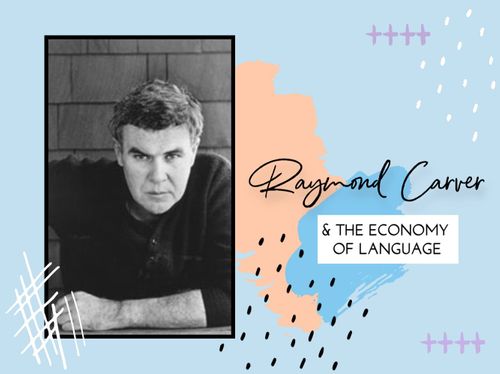What Raymond Carver Taught Me about Writing
Oct 27, 2021 · 2 mins read
0
Share

In the early 2000s, at the suggestion of a colleague, I submitted a manuscript I’d been working on for two years to a professor of literature for feedback. Though I was already a published author, I still felt inferior to those who had committed themselves to the craft.
Save
Share
The professor’s feedback was blunt: You can write – and you write as you speak. That works in journalism, but propelling a narrative has a different rhythm than a conversation, even an engaging one.
Save
Share
Yes, he liked the story and the world it was set in but his comments made me realize the holes in it. I was often talking at the reader and not engaging with them. Thinking of the audience as participatory changed my perspective on writing. So did his second suggestion...
Save
Share
He asked me if I knew James Joyce and Raymond Carver – writers I hadn’t read about since college. Days later, I received used copies of Finn’s Hotel by Joyce and Carver’s All The Stories from him with a note that read, “I think you’ll find craft in Joyce and a compass in Carver.”
Save
Share
I dug in and was immediately drawn to how Carver was able to describe things that are mundane or dark in the same simple language, without relying too heavily on descriptors or purple prose.
Save
Share
Part of my problem with formal learning is wanting to resist convention – to be told how to make art. I’d avoid delving into the tomes of literature because I thought it was cliché. Subscribing to something as pretentious as The New Yorker was for academics.
Save
Share
It took years for me to understand that learning the rules doesn’t mean playing by them. Craft is about understanding why things work, why things don’t, and then making the writing something that can only be said by the author. That’s Raymond Carver.
Save
Share
In December of 2007, I found myself at an airport newsstand looking for overpriced water and something to read. Perhaps in jest, I picked up the current issue of The New Yorker and saw a piece had been published about Carver titled “Rough Crossings,” so I bought it.
Save
Share
The piece mapped out the tenuous relationship between Carver and his editor Gordon Lish. Lish would cut up to 70% of the text, whittling paragraphs down to a few words. As a recovering alcoholic, Carver felt vulnerable but managed to trust Lish for his honesty and track record.
Save
Share
Understanding this relationship, and seeing pictures of Lish’s edits, made me appreciate not only the value of feedback but how to zoom out and use words sparingly. If editing had helped Carver become a master of language, a novice should have no problem facing a few cuts.
Save
Share
0